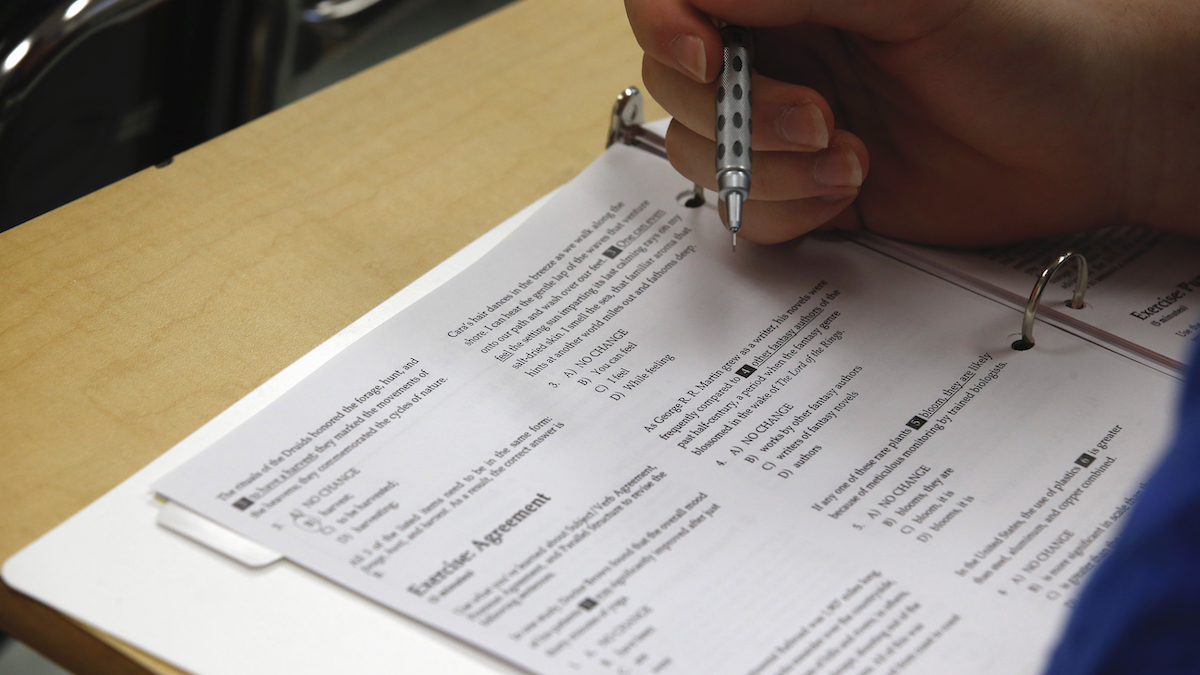
California State University, the largest-four year university system in the country, is poised to eliminate SAT and ACT standardized tests from its undergraduate admissions process, following a trend in higher education over concerns that the exams are unfair to minority and low-income students.
The Board of Trustees for the 23-campus CSU system will vote in March on recommendations to end the testing requirements, which were presented at a meeting Wednesday and met with widespread enthusiasm.
“This issue of SAT and ACT testing has overwhelmed students and families for a long time,” said trustee Diego Arambula. “It feels so important to do this.”
California State University has 486,000 students. If trustees vote to permanently eliminate the exams, CSU would join the University of California in having a “test blind” admission process. The UC’s Board of Regents voted last year to drop the standardized tests at its nine undergraduate campuses.
Get a weekly recap of the latest San Francisco Bay Area housing news. Sign up for NBC Bay Area’s Housing Deconstructed newsletter.
Critics have long argued that standardized tests put minority and low-income students at a disadvantage, in part because of test questions that can contain inherent bias which more privileged children are better equipped to answer. They also say wealthier students typically take expensive prep courses that help boost their scores, which many students can’t afford.
Like many colleges and universities, California State University temporarily suspended the use of the SAT and ACT exams during the COVID-19 pandemic and that rule stays in effect through the 2022-23 academic year.
The system’s admission advisory council, made up of faculty, students and a variety of administrators and student leaders, has been studying what to do after that and approved a recommendation to end testing, which was discussed at Wednesday’s meeting.
Under the recommendation, Cal State would base admission on a formula in which a high school grade point average would be most heavily weighted, but would also factor in extracurricular activities like leadership work and whether an applicant is a first-generation college student or comes from a school with a high percentage of low-income students.
“As we continue to evolve our admission standards we do so with a focus on equity and increased awareness of the new data of standardized test scores,” said Assistant Vice Chancellor April Grommo. She cited a CSU study on the incoming 2018 freshman class that found SAT scores added no additional indication over high school GPA of a student’s success in the university system.
Many U.S. colleges have adopted a “test optional" policy, but the standardized tests would not be considered at all in CSU admissions under the proposed policy, Grommo said.
“An optional test basically sends mixed messages to students,” she said. Students ultimately feel they need to take the standardized tests to get an advantage in the admissions process.
If a student does submit an SAT or ACT score it could be used for the purpose of placing them in math or English courses, but not for admissions.
The College Board, which administers the SAT, announced Tuesday that the test will move online to a digital format, instead of being a paper and pencil exam, and that it will be shortened from three hours to two hours. The format change is scheduled to roll out next year in the U.S. and in 2024 internationally, as part of an effort to boost the exams relevancy as more colleges make the test optional, it said.
But those changes will have no impact on the proposal before Cal State trustees, said Sylvia Alva, executive vice chancellor for academic and student affairs.
Trustee Yammilette Rodriguez praised the plan as one that will help students avoid what she went through.
“I had a 4.0 GPA but did not have the support to guide me and my parents didn’t have that information to help guide me,” said Rodriguez, who said she went to a rural high school that lacked college support. She missed SAT deadlines and didn’t take the test, then went to community college before she could transfer into California State University, Fresno.
“As someone who navigated the college system by myself and know I share that story with so many students, I thank you for saying that we are going to increase pathways for all students,” she said.



